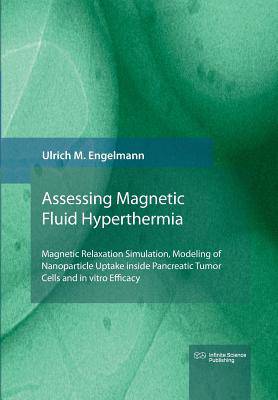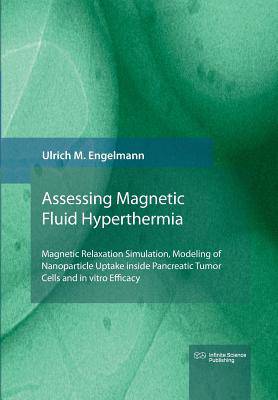
Je cadeautjes zeker op tijd in huis hebben voor de feestdagen? Kom langs in onze winkels en vind het perfecte geschenk!
- Afhalen na 1 uur in een winkel met voorraad
- Gratis thuislevering in België vanaf € 30
- Ruim aanbod met 7 miljoen producten
Je cadeautjes zeker op tijd in huis hebben voor de feestdagen? Kom langs in onze winkels en vind het perfecte geschenk!
- Afhalen na 1 uur in een winkel met voorraad
- Gratis thuislevering in België vanaf € 30
- Ruim aanbod met 7 miljoen producten
Zoeken
Magnetic Fluid Hyperthermia
Magnetic Relaxation Simulation, Modeling of Nanoparticle Uptake inside Pancreatic Tumor Cells and in vitro Efficacy
Ulrich Engelmann
Paperback | Engels
€ 132,45
+ 264 punten
Omschrijving
Magnetic fluid hyperthermia (MFH) uses magnetic nanoparticles (MNP) to transform the energy of an alternating magnetic field into heat via magnetic relaxation. This enables organ-confined cancer treatment by delivering cell-damaging temperatures higher than 43°C inside tumors. However, MNP-cell interaction restricts MNP mobility and causes MNP agglomeration, severely limiting the MNP heating behavior. Based on in vitro experiments, this book addresses the applicability of MFH to pancreatic tumor cells and discusses optimizations of intracellular MNP heating for clinical application. The impact of MNP-cell interaction on heating efficiency is quantified and compared to MNP systems mimicking intracellular conditions. Besides, Monte-Carlo simulation of MNP magnetic relaxation is used to predict optimal field parameters and MNP properties to maximize MFH efficiency under medical constraints.
Specificaties
Betrokkenen
- Auteur(s):
- Uitgeverij:
Inhoud
- Aantal bladzijden:
- 302
- Taal:
- Engels
Eigenschappen
- Productcode (EAN):
- 9783945954584
- Verschijningsdatum:
- 7/03/2019
- Uitvoering:
- Paperback
- Formaat:
- Trade paperback (VS)
- Afmetingen:
- 170 mm x 244 mm
- Gewicht:
- 485 g

Alleen bij Standaard Boekhandel
+ 264 punten op je klantenkaart van Standaard Boekhandel
Beoordelingen
We publiceren alleen reviews die voldoen aan de voorwaarden voor reviews. Bekijk onze voorwaarden voor reviews.









